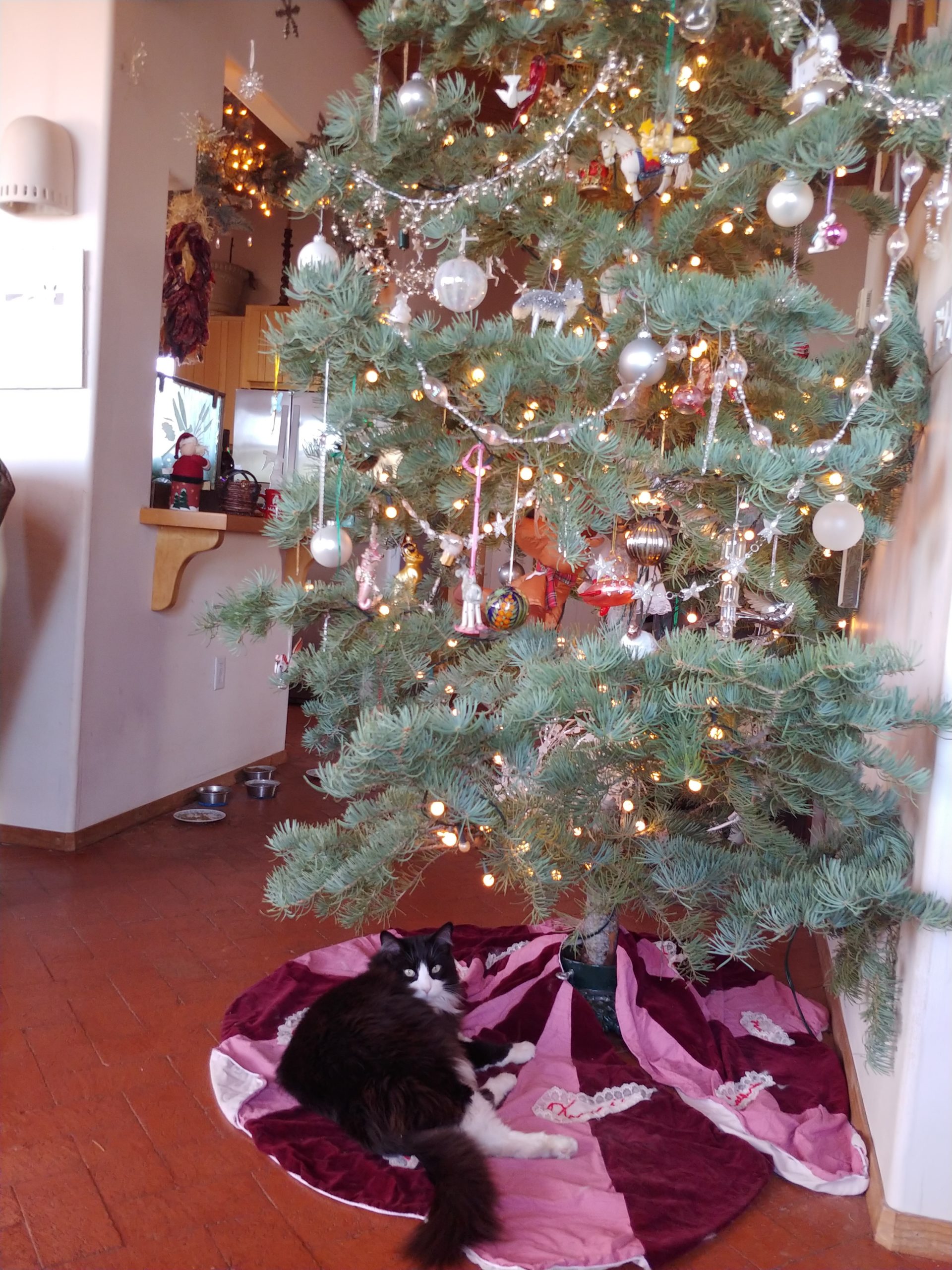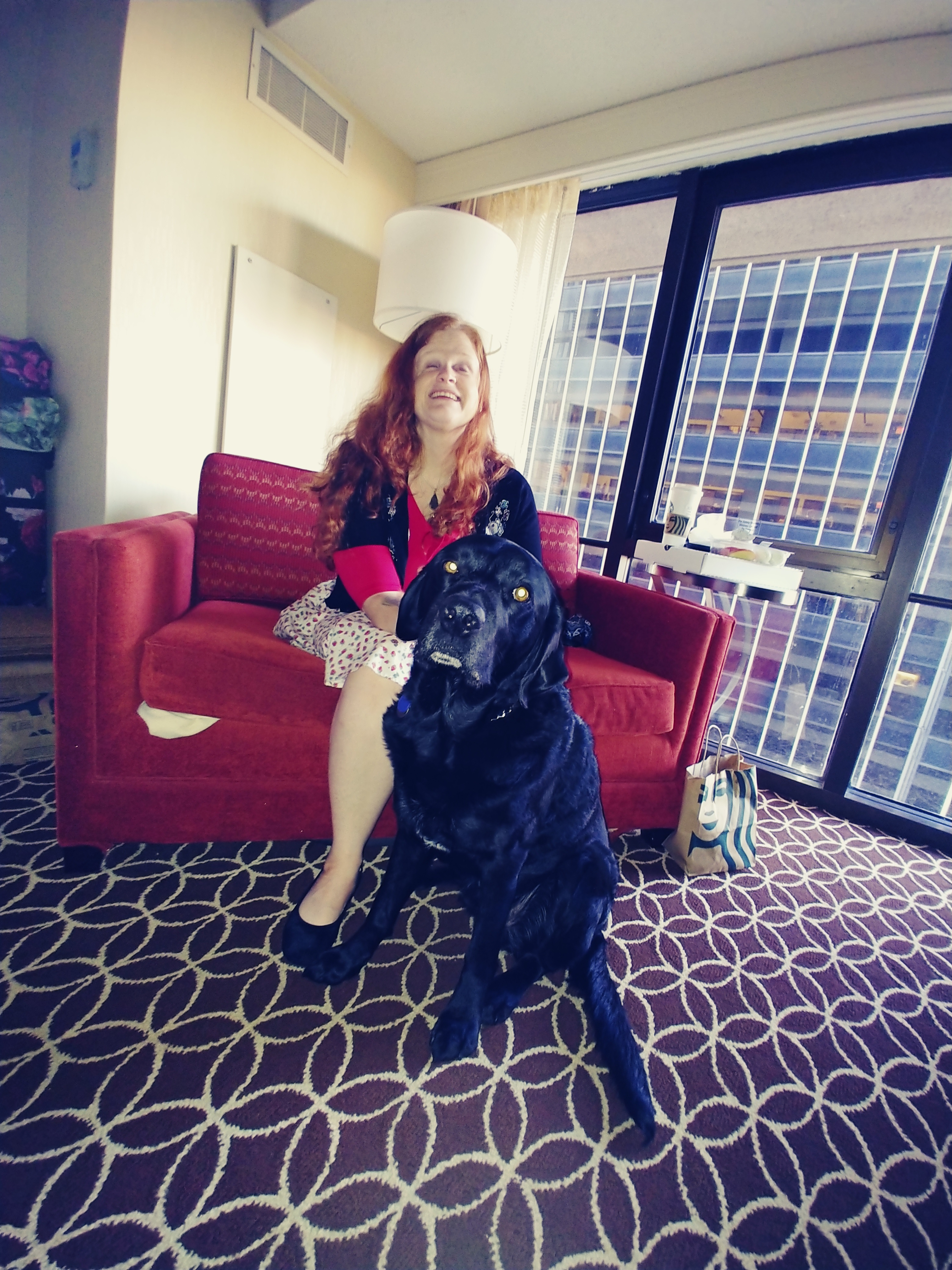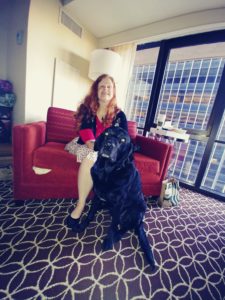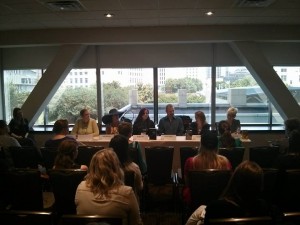


RITA ® Award-Winning Author of Fantasy Romance





 This is a great pic of our panel, at RT Convention, on writing disabled characters. From left to right, that’s Sassy Outwater, me, Megan Hart, Damon Suede, Tessa Dare and Linnea Sinclair.
This is a great pic of our panel, at RT Convention, on writing disabled characters. From left to right, that’s Sassy Outwater, me, Megan Hart, Damon Suede, Tessa Dare and Linnea Sinclair.
Sassy, who is a passionate activist for accessibility for the disabled put together this panel, inviting authors with books she’d read that she felt portrayed disabled characters in strong, positive ways – sexy ones, even. I tweeted about the panel (NATURALLY) and Carla Richards (@carlarichards) asked me to relay some of our high points.
Of course, this was over a month ago and it *feels* like years ago, but…
We started with introductions and each author discussed the books and characters Sassy had selected. We talked about why we “chose” those characters – sometimes they choose us – and what their various disabilities had to do with the stories themselves.
The thing about a really good panel is I learn so much from my fellow panelists. I loved hearing about other people’s stories. I’d read – and loved, loved, loved – Megan Hart’s BROKEN, about a woman whose husband suffers an accident and becomes quadriplegic. Damon Suede talked about his characters with PTSD and another with severe injuries. Tessa Dare writes of the impact of chronic diseases in her historical romances, such as the complications of negative rH factor on pregnancies in that era. Linnea has a deaf hero and another with cybernetic prosthetic limbs, following an accident.
I always feel like the non-dramatic one in this context. In fact, I wouldn’t call my heroine in PLATINUM disabled at all, but Sassy insists that’s why she’s a great example. My heroine Althea is albino. This was my follow-up to SAPPHIRE and I was playing with the impact of color in stories. I knew I wanted the book to be about a metal sculptor and the images of white-platinum. I wanted a heroine with that coloring – and for him to be attracted to her for that reason.
As I read up on what it’s like to be albino – and this was one of the questions for the panel, how we did our research. I did mine by reading an albino girl’s blog where she journaled very frankly about her condition – and discovered many things I hadn’t known. The tremendously increased incidence of skin cancers and, very interestingly, poor eyesight. This dovetailed perfectly with my heroine because I wanted her to be a failed artist. I tied in her difficulty with fine vision to her inability to paint the delicate watercolors she felt compelled by her culture to create. In the end, through her love affair with the sculptor, she finds other ways to express herself.
So, there’s a couple of key factors here, that arose over and over in the panel. I’ll try to encapsulate them.
For those who were there, anything I forgot to mention? Or do you all have other additions or questions?
All in all, it was a terrific panel that I’d love to see again. Big-brimmed hat’s off to Sassy for organizing. Speaking of which, she’s in the hospital right now recuperating from brain surgery to remove tumors. (Yes, related to the blindness.) She can use all the positive thoughts she can get, so send them her way!